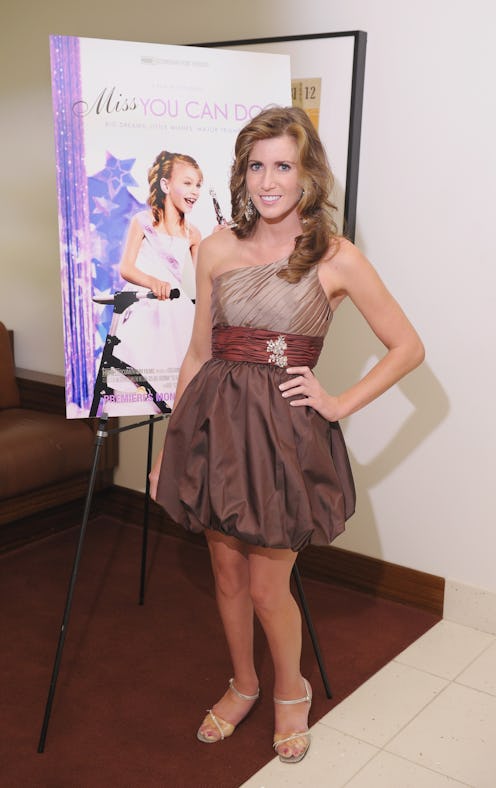Entertainment
'Miss You Can Do It': Inspiring, or "Inspiration Porn"?
Ten years ago, Abbey Curran, the first physically disabled Miss USA contestant, established a beauty pageant for girls like her. The pageant, cheerfully named Miss You Can Do It, has been the subject of numerous feel-good stories over the years, most recently a documentary that aired Monday night on PBS.
Unsurprisingly, the film’s reception has been almost entirely positive—and also one-note, in many ways condescending. Parents.com calls it “an amazingly special movie.” Glamour.com promises its readers they’ll be “so inspired.”
“The looks of glee and wonder on their cherubic faces will melt hearts,” writes Adrienne Vogt of The Daily Beast, in one of the more explicitly patronizing articles. Vogt goes on to describe the girls doing heroic (read: totally normal) things, like expressing emotion with their faces. “Quadriplegic Daleney constantly breaks into a smile as wide as her face, even if she struggles to walk. Meg and her sister Alina, who both have Down syndrome, play together on a jungle gym.”
I’m aware that I would come across as a major killjoy if I said anything less than positive about this “sweet”, “heartwarming” documentary.
So I asked some women who are themselves physically disabled what they thought.
Kathleen Downes, a 20-year-old with cerebral palsy, had mixed feelings.
“It is refreshing to actually see someone like me on TV, but it also promotes the idea that disabled girls are inspiring for doing things that other little girls do—which seems to reflect low expectations for the girls with disabilities. Plus, giving disabled girls a separate pageant implies that their bodies would have no place in a general pageant, whereas other minorities, such as African Americans, would be welcomed and praised in the main pageant.”
Meg Mertens, another physically disabled college student, agrees that Miss You Can Do It promotes a double standard: "Why didn't Curran push for body equality in pageants?" asked Mertens. "Setting the girls apart tells them that they are held to a different standard of beauty than their able-bodied counterparts."
Cara Liebowitz, a 21-year-old student who also has cerebral palsy, tweeted:
The pageant’s special rules certainly imply that these girls are somehow less able to deal with rejection and disappointment than their able-bodied peers. “No one leaves the pageant empty-handed, with each girl receiving a special award,” boasts the film’s website.
The whole thing verges on what Liebowitz dubs “inspiration porn.”
“Inspiration porn paints disabled people as the less fortunate, the ones who remain Pollyanna-plucky despite all their misfortune,” said Liebowitz. “The truth is, we’re not more or less fortunate than the non-disabled population. We’re simply human.”
Why does media coverage of the disabled tend to portray them as heroic for doing normal things? Extreme praise is merely another way of dealing with difference. Turning the disabled into inspiration can be just as dehumanizing as locking them up in asylums.
The structuralist anthropologist Mary Douglas surveyed different cultures’ tactics for dealing with phenomena perceived as abnormal and found that the most common strategies were destruction and avoidance: We eliminate the anomaly (yikes) or we make it less threatening by turning it into something “other.”
We’ve come a long way in our treatment and perceptions of the physically disabled—but turning them into inspiration is still a form of “othering.”
